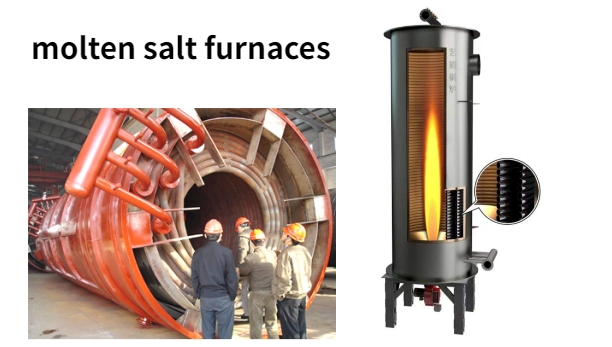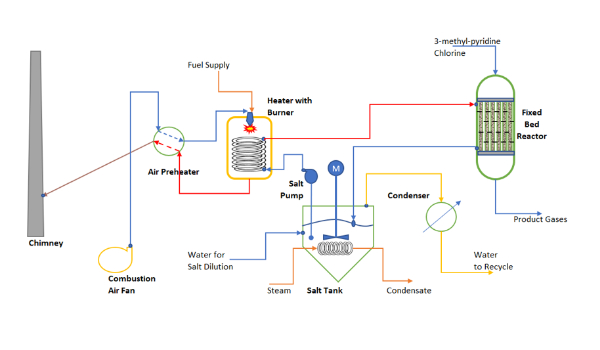The molten salt boiler uses ternary or binary inorganic molten salt (a mixture of potassium nitrate, sodium nitrate, sodium nitrite, va hokazo.) as the heat transfer medium uses coal, oil, or gas as the fuel for heating, and uses the molten salt circulation pump to force the liquid phase Circulation, the heat energy is delivered to the heating equipment and then returned to the special industrial boiler for reheating. The entire boiler system is mainly composed of a molten salt circulation system, a combustion chamber system, and a heating system. Molten salt working temperature ranges from 250°C to 580°C.

Molten salt furnace classification
Classification according to the circulation method of molten salt boiler
Can be divided into natural circulation molten salt furnaces and forced circulation molten salt furnaces.
According to different heat sources
Can be divided into coal-fired, oil-fired, gas-fired, electric-heated molten salt furnaces, va hokazo.
Classification according to the structural form of molten salt boiler
It can be divided into cylindrical, square box, and tube frame molten salt furnaces.
Classification according to the overall placement form of the molten salt boiler
Can be divided into vertical molten salt furnaces and horizontal molten salt furnaces.
Refractory materials for molten salt furnaces combustion chamber

- Material requirements for combustion holes and furnace tops
Its long-term use temperature is 1350℃, and it needs to have good thermal shock stability, using mullite castable. - Material requirements for the bottom of the combustion chamber
The bottom uses high-aluminum wear-resistant castable. - Insulation material requirements around the top of the pipe and the burner holes
The thinnest part of the insulation layer at the top of the coil is only 250mm. It is necessary to ensure long-term use and reduce the temperature of the furnace top guard plate to below 100°C.
 Rongsheng guruhi
Rongsheng guruhi

WeChat
QR kodini wechat orqali skanerlang